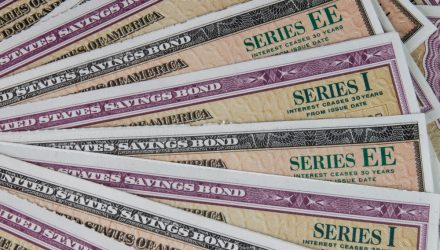Vanguard entered 2023 forecasting that a recession would hit the U.S. this year. Now, the firm has pushed out the timeline for a U.S. recession to 2024.
Vanguard is now estimating that the labor market will remain strong in 2023. Plus, inflation will be “sticky and well above the Fed’s target.” This will lead the Federal Reserve to make “a couple of hikes before the end of the year.” And ultimately, Vanguard’s “base case is that … [a]recession doesn’t occur in 2023.”
See more: “Corporate Bonds Can Be a Part of a Retirement Portfolio”
Diversify Portfolios With BND & BSV
Should a recession not occur this year, investors may want to diversify their portfolios with some high-quality bonds. That’s where the Vanguard Total Bond Market Index Fund ETF Shares (BND) and the Vanguard Short-Term Bond Index Fund ETF Shares (BSV) come into play.
BND seeks to track the performance of the Bloomberg U.S. Aggregate Float Adjusted Index. The index represents a broad spectrum of public, investment-grade, taxable, fixed income securities in the U.S. This includes government, corporate, and international dollar-denominated bonds, as well as mortgage-backed and asset-backed securities. The fund targets securities with maturities of more than one year.
Though holding securities of all maturity lengths, BND is heavily weighted towards the short end of the curve. BND has an expense ratio of 0.03%.
BSV, meanwhile, seeks to track the performance of the Bloomberg U.S. 1–5 Year Government/Credit Float Adjusted Index. The market-weighted bond index covers investment-grade bonds with a dollar-weighted average maturity of one to five years.
The fund invests in U.S. government, investment-grade corporate, and investment-grade international dollar-denominated bonds. BSV carries an expense ratio of just four basis points.
For more news, information, and strategy, visit the Fixed Income Channel.

